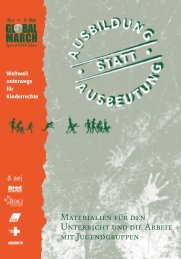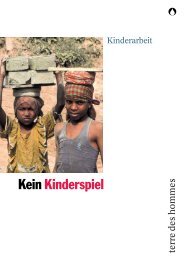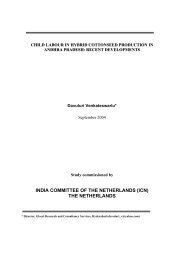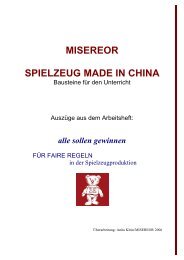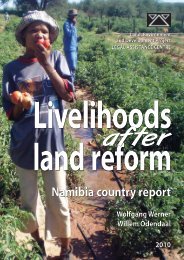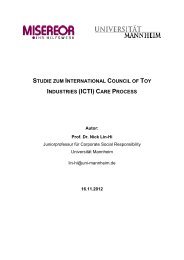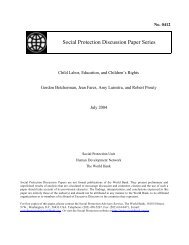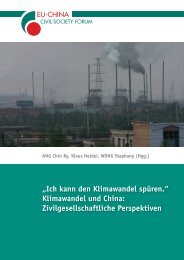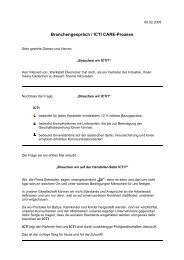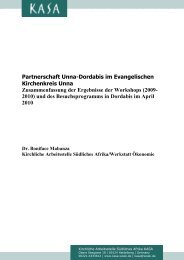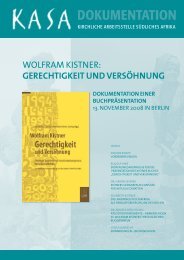“You'll Be Fired if You Refuse†- Human Rights Watch
“You'll Be Fired if You Refuse†- Human Rights Watch
“You'll Be Fired if You Refuse†- Human Rights Watch
Create successful ePaper yourself
Turn your PDF publications into a flip-book with our unique Google optimized e-Paper software.
ules of the organisation concerned, to join organisations of their own choosing without<br />
previous authorisation.” 275<br />
In 2009, the International Trade Union Confederation (ITUC) noted that while “Zambia has<br />
rat<strong>if</strong>ied the ILO Conventions on trade union rights… the legislation on freedom of<br />
association and collective bargaining is not in full conformity with ILO Conventions … [and]<br />
trade union rights are widely flouted in the mining sector in particular.” 276 In particular, the<br />
ITUC found that, in contravention with the ILO conventions, Zambian law permitted the<br />
stopping of strikes that were not in the public interest and subjected them to procedural<br />
requirements that made it “almost impossible … to hold a legal strike.” 277 The ITUC noted a<br />
“worsening social climate in the mining industry” for trade unions, with spec<strong>if</strong>ic reference<br />
to “Chinese investors who are often accused of intimidating and brutal attitudes.” 278<br />
Efforts to Bar MUZ at CCS, Sino Metals<br />
Management at two Chinese-owned copper mining operations have actively impeded<br />
workers from joining MUZ. Although opinions vary greatly throughout the Copperbelt, MUZ<br />
is often reputed to have greater resources and energy to fight for members’ rights than has<br />
the much newer NUMAW.<br />
At China Luanshya Mine (CLM), where the previous structure was kept in place following<br />
CNMC’s purchase, both NUMAW and MUZ operate freely. And at NFCA, MUZ has operated a<br />
branch office since 2006, with NUMAW establishing its own branch office since soon after<br />
that union’s creation in 2003. But in the Chambishi processing and smelting operations—<br />
Sino Metals and CCS—management has continued to refuse to sign a recognition<br />
agreement with MUZ, according to Charles Muchimba, the director of research at MUZ’s<br />
national office. He told <strong>Human</strong> <strong>Rights</strong> <strong>Watch</strong>:<br />
We took [Sino Metals] to court over this, over their refusal to allow a<br />
“recognition agreement” that allows you to form an elected branch of the<br />
union on site—that allows you to set up a branch office, essentially. The<br />
court ruled in our favor in 2007, or 2008, but there is still no branch there.<br />
275 International Labour Organization Convention No. 87: Convention concerning Freedom of Association and Protection of<br />
the Right to Organise, adopted July 7, 1948, art. 2. Zambia rat<strong>if</strong>ied the convention in September 1996. Both the ICCPR and the<br />
ICESCR reference the ILO convention on the right to organize.<br />
276 International Trade Union Confederation (ITUC), Internationally Recognised Core Labour Standards in Zambia: Report for<br />
the WTO General Council Review of the Trade Policies of Zambia, July 2009, p. 1.<br />
277 Ibid., p. 3.<br />
278 Ibid.<br />
“YOU’LL BE FIRED IF YOU REFUSE” 86



